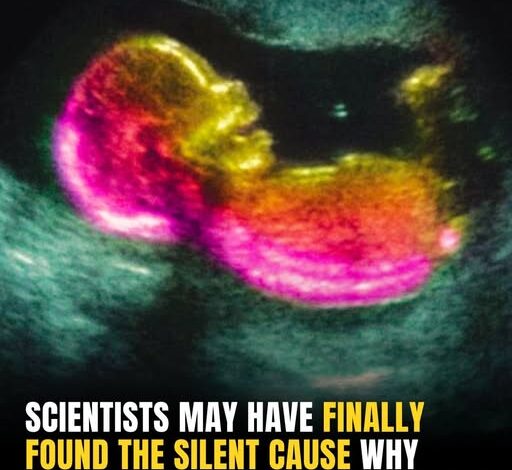Breakthrough Fertility Research: How Immune System Dysfunction May Impact Women’s Reproductive Health

Revolutionary Findings in Reproductive Medicine and Women’s Health
Groundbreaking research in reproductive medicine has revealed potentially significant connections between immune system function and fertility challenges affecting millions of women worldwide. This emerging field of reproductive immunology offers new hope for couples struggling with unexplained infertility, even when conventional fertility assessments show normal results.
Medical researchers at premier fertility centers have identified immune system irregularities that may contribute to conception difficulties and early pregnancy complications. These findings represent a paradigm shift in understanding women’s reproductive health and could transform fertility treatment approaches for countless individuals seeking family planning solutions.
Understanding Immune-Related Fertility Complications
The human immune system, designed to protect against harmful substances, may sometimes mistakenly target healthy reproductive processes. During the critical implantation period, when a fertilized embryo attaches to the uterine lining, certain immune responses can interfere with successful pregnancy establishment.
Scientists have documented cases where immune cells treat developing embryos as foreign invaders rather than recognizing them as part of the reproductive process. This autoimmune response can prevent successful implantation or trigger very early pregnancy loss, often occurring before women realize they’re pregnant.
Reproductive Autoimmune Disorders and Fertility Impact
Medical professionals have identified several immune-related conditions that may affect reproductive success. Elevated natural killer cell activity in the uterus can disrupt normal embryo implantation processes, creating hostile environments for early pregnancy development.
Antiphospholipid syndrome represents another autoimmune condition where the body’s defense system attacks healthy cellular components, potentially affecting blood flow to reproductive organs and developing pregnancies. Additionally, cytokine imbalances can create inflammatory conditions that interfere with optimal reproductive function.
These reproductive autoimmune disorders often remain undetected through standard fertility testing protocols, leaving many women without explanations for their conception difficulties or pregnancy losses.
Innovative Treatment Approaches in Fertility Medicine
Progressive fertility specialists are developing targeted immunotherapy treatments to address immune-related reproductive challenges. These advanced treatment protocols may include carefully monitored immunosuppressive medications designed to modulate overactive immune responses during critical conception periods.
Nutritional interventions and specialized dietary modifications show promise in supporting immune system balance and creating more favorable conditions for successful pregnancy outcomes. Some fertility centers are incorporating anti-inflammatory supplements and immune-supporting nutrients into comprehensive treatment plans.
Medical practitioners are also exploring personalized medicine approaches, using detailed immune system testing to develop individualized treatment strategies based on each patient’s specific autoimmune profile and reproductive history.
Clinical Success Stories and Patient Outcomes
Women with histories of multiple IVF failures and recurrent pregnancy loss have experienced improved reproductive outcomes following immune-focused fertility treatments. These encouraging results suggest that addressing underlying immune dysfunction may significantly enhance conception rates and pregnancy success.
Fertility specialists report that patients who previously experienced repeated implantation failures often achieve successful pregnancies after receiving targeted immunotherapy treatments. These positive outcomes are generating excitement within the reproductive medicine community and offering renewed hope for previously unsuccessful cases.
Expert Perspectives on Reproductive Immunology
Leading reproductive health researcher Dr. Helena Ruiz emphasizes the importance of expanding fertility assessments beyond traditional hormonal evaluations. Her research team’s work highlights how immune system dysfunction may represent a missing piece in understanding unexplained infertility cases.
Medical experts suggest that reproductive immunology may revolutionize fertility treatment approaches, providing new diagnostic tools and therapeutic options for couples facing conception challenges despite normal reproductive function testing.
When to Consider Immune System Fertility Testing
Women experiencing multiple unsuccessful assisted reproductive technology cycles may benefit from comprehensive immune system evaluation. Those with histories of recurrent early pregnancy loss should consider discussing reproductive immunology assessments with qualified fertility specialists.
Individuals diagnosed with unexplained infertility despite normal hormone levels, ovulation patterns, and reproductive anatomy may find answers through advanced immune function testing and specialized treatment protocols.
Future Directions in Fertility Research and Treatment
This emerging research area represents significant advancement in reproductive medicine, offering new diagnostic capabilities and treatment options for complex fertility cases. As scientific understanding of immune-reproductive interactions continues expanding, medical professionals anticipate developing even more effective therapeutic interventions.
The integration of immunology and reproductive medicine creates unprecedented opportunities for helping couples achieve successful pregnancies and family planning goals through personalized, scientifically-based treatment approaches.